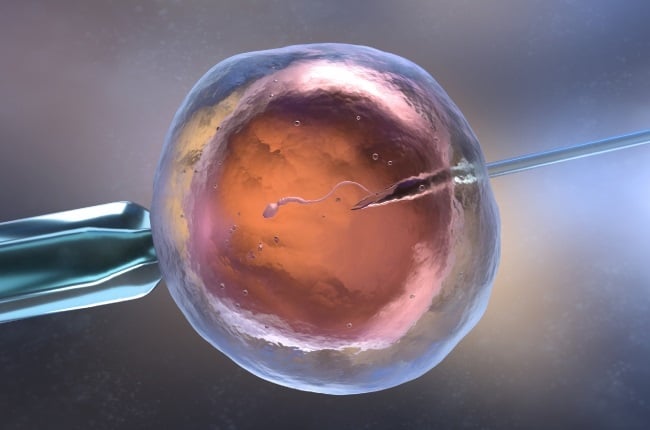
For almost a decade, Nonhle* dreaded the arrival of Mother’s Day – a heart-breaking occasion for women who, like her, struggle with infertility.
But the first year of Covid-19 lockdown came with sone unexpected news for the 32-year-old entrepreneur.
She and the man whom she had met and fallen in love with in her 20s were finally pregnant.
After two years of trying, Nonhle began to avoid family gatherings where aunts, cousins and especially her mother-in-law commented on her childless state.
The only useful advice she received was from an aunt who was a nurse at a fertility clinic. She visited the clinic and a doctor diagnosed her with polycystic ovary syndrome (PCOS), a hormonal disorder that commonly causes infertility in women.
Nonhle was encouraged to lose weight and keep trying.
Three Mother’s Days came and went and Nonhle was still not pregnant.
Her doctor prescribed medicine to help her ovulate, and suggested the couple consider in vitro fertilisation (IVF), a procedure in which the egg is fertilised with sperm in a laboratory then placed in the uterus.
The first IVF transfer failed, as did the second and a third.
With their finances depleted by the expensive treatment and their marriage taking strain, Nonhle and her husband tried to make peace with their childlessness and applied to become foster parents.
Read more | ‘Can I stop paying child maintenance?’
But Nonhle’s gogo passed on and left her a small legacy, which the couple used to pay for one more IVF cycle.
- NOT JUST A WOMAN’S ISSUE
“Infertility can be connected to a number of variables, including social, medical and lifestyle factors. By definition, a couple that has been trying to have a baby for 12 consecutive months with no success naturally, is deemed to be infertile,” says Dr Kasturi Moodley, Obstetrician and Gynaecologist at Mediclinic Southern Africa, who has extensive experience in the field of fertility treatment and helping couples along their pregnancy journey.
“Currently, infertility challenges affect at least one in every six couples in South Africa – an issue that statistics attribute equally to both men and women,” according to the hospital group.
“Some of these couples turn to IVF as a medical solution. A good understanding of the conditions in which IVF is the most suitable intervention and how it works, can be instrumental in helping couples make informed decisions about their pregnancy journey.
“According to the South African Registry for Assisted Reproductive Techniques, 5000 IVF cycles are performed in South Africa ever year. Despite several turbulent economic trends in recent times, this statistical value has remained relatively stable when compared to previous years.”
Read more | Does having children make humans happier?
- CONCEPTION PROBLEMS
To get pregnant, you must ovulate – your ovaries must produce and releasean egg.
Eggs are released into the Fallopian tube each month.
- HOW EXPERTS DETERMINE WHETHER IVF IS THE BEST ROUTE
“The good news if that treatments like IVF, in tandem with a few lifestyle changes, can make all the difference in helping couples fulfil their dream of becoming parents,” says Dr Moodley.
“It’s important that healthcare institutions and practitioners take their role seriously in destigmatising infertility, normalising fertility support interventions and promoting awareness around what couples can do to increase their chances of success.
“At the point at which infertility is detected, the fertility clinic will perform baseline investigations, including an ovarian reserve/hormonal profile, a fallopian tube test (HSG) and a semen analysis. Once the clinic has these results, the practitioner, in consultation with the couple, will be in the best position to make an informed decision on which fertility intervention would be the most suitable.
“A normal/reasonable ovarian reserve, a set of normal, patent fallopian tubes, and normal semen analysis will typically result in the patient being presented with two options: IVF or intrauterine insemination (IUI). Alternatively, if a problem a problem is detected in these three main diagnostic areas, the problem will dictate the fertility treatment that is recommended, on a case-by-case basis.”
Read more | https://preview.snl24.com/drum/Advice/Parenting/does-having-children-make-humans-happier-20240304
“It is very important to note that an invasive fertility treatment is not always the only option recommended,” she adds.
“Treating fertility issues is a highly personalised process that depends on several factors that will be unique to each couple. It is therefore vital that couples undergo consultations with the right medical experts who will review their case and assist them in making the decision that works for them.”
- WHO CAN DO IVF?
“IVF is suitable for any couple in whom the woman is 35 years old and above and/or who has not had success with IUI procedures.
“IVF is also suitable for same sex couples in whom one partner would like to provide the egg and the other partner would like to use her uterus to grow an embryo – doing it in this way ensures that both partners play an integral part in the fertility process.”
- HOW TO IMPROVE YOUR CHANCES OF IVF SUCCESS
For Dr Moodley, lifestyle modifications play a vital role in the process.
“Couples need to see fertility treatment not as a quick fix, but as a process that requires a good amount of self-discipline and sound decision-making. Making healthier choices, in a holistic way that carries through in every area of your lifestyle can go a long way in promoting a positive outcome,” she says.
“Eating a healthy, balanced diet and engaging in regular exercise is highly recommended. Furthermore, it’s important to practice moderation where the consumption of alcohol is concerned, and to stop smoking.
“Being holistically healthier is the first place to start. And if you can make these changes as a couple, even better. Experiencing fertility issues and undergoing the process of IVF can be immensely emotionally and mentally trying. For this reason, honest and open communication between partners is important.”
*Her name is known to Drum but has been removed by request



















